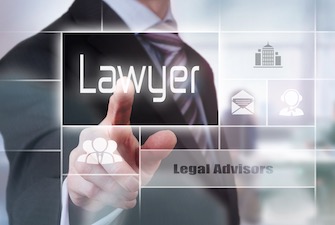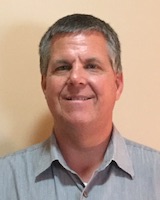 As the dearly departed Prince once sang, it could be a sign of the times. Only in this case the reference is about big law firms moving into the intellectual property (IP) space, including acquiring IP boutiques. For example, Polsinelli acquired the Novak Druce IP practice in early 2016. However, when big law firms acquire IP boutiques it does not always—or even usually—work. Because if a big firm acquires a patent prosecution-based boutique it may not make sense because billable hours and rates for patent prosecutors do not compare with those of litigators. It also creates internal conflicts of interest.
As the dearly departed Prince once sang, it could be a sign of the times. Only in this case the reference is about big law firms moving into the intellectual property (IP) space, including acquiring IP boutiques. For example, Polsinelli acquired the Novak Druce IP practice in early 2016. However, when big law firms acquire IP boutiques it does not always—or even usually—work. Because if a big firm acquires a patent prosecution-based boutique it may not make sense because billable hours and rates for patent prosecutors do not compare with those of litigators. It also creates internal conflicts of interest.
But the situation could have changed. This time the acquisitions might work because in many respects IP boutiques focus on administrative trial work at the USPTO due to the America Invents Act (AIA), which is more like litigation, and will not create the same conflicts of interest. But not everyone has the same opinion.
Intellectual Property: Like Nothing Else
According to some legal practitioners, the practice of IP protection remains unlike any other field of the law. For example, IP is an international discipline, and IP practitioners must have the ability to handle clients who have global concerns, from their perspective.
“My firm has clients in China, France, Germany and the United Kingdom,” says Anthony M. Verna III, Esq., managing partner, Verna Law, P.C., an IP boutique firm focusing on trademark, copyright and patent law. “That’s hard for many firms—even big firms—to handle. I’m able to advise those outside my jurisdiction on federal matters because they are federal matters. IP firms just tend to look radically different than other law practices.”
Under this world view, IP boutiques will retain the upper hand. So it might be futile for large law firms to acquire business in the IP field.
America Invents Act Affects Motivation to Acquire
A related concern to big law firms acquiring smaller IP boutiques is how AIA has affected the market potential for IP/patent practices. In the opinion of some attorneys, certain IP boutiques have made out better in the wake of AIA due to how they operate tactically.
“AIA has been helpful to boutiques who have a strong litigation group but too often get passed over for the ‘monster’ patent infringement work,” says Robert M. Siminski, attorney at law, principal, Harness, Dickey & Pierce, PLC. “Because boutiques tend to be staffed by USPTO qualified attorneys with strong technical backgrounds and vast experience dealing with the USPTO the playing field often skews in their favor as to being selected to handle administrative trials as to patent validity.”
Technical Experts in Another Life
In fact, the feeling among IP boutiques that they provide a service unique in the legal field remains more widespread than a casual observer may perceive. This harkens to the anecdotal evidence that before they heard the siren call of the legal profession, many IP boutique principals, partners and even founders had previous lives in the engineering and computer science fields.
For example, Boston-based IP boutique Wolf Greenfield, which recently expanded into New York City, says that 90 percent of its professional staffers have an educational background in science or engineering, and more than 50 percent of its attorneys once worked as engineers or scientists. According to the firm, this type of training and experience allow its lawyers to empathize better with clients knowing the obstacles they face and environment within which they operate.
“With an already significant and growing client base in New York, we will now be in a position to better serve our local clients, as well as engage with the city’s innovative businesses, universities and thriving entrepreneurial ecosystem,” says Michael Rader, co-chair of Wolf Greenfield’s litigation practice. “The new office also creates opportunities for us to add new talent to our team of 115 attorneys and technology specialists—70 percent of whom have a master’s degree, PhD or MD, and half of whom have industry experience in science or technology.”
Patent Prosecution a Commodity
Some might ask why big law firms would want to get into patent prosecution, which can carry the label of a commodity business, in their opinions. One rationale goes they leverage their less-senior associates for this business, but that leads to uneven results.
“Large law firm patent prosecution practices remain highly commoditized,” says William Munck, managing partner, Munck Wilson Mandala, a technology-focused law firm, “but are characterized by high overhead, high-volume-fixed fees and inconsistent work-product because junior attorneys are responsible for patent prosecution.”
In contrast, patent boutique prosecution practices can offer fast turnaround, high-volume-fixed fees offset by low overhead and consistently sound work-product based on their legal experience and technical expertise, according to Munck.
Patent Billable Time vs. Litigation Fees
Because patents take just about 15 hours of billable time at $1,000 per hour, patent prosecutions represent only small chunks of fees, according to Greg T. Sueoka, managing partner, Patent Law Works LLP, a specialist in IP law. And at big law firms, high revenue potential remains the province of litigation fees, according to Sueoka.
Therefore, one can conclude that the patent teams do not have the clout within big firms to pursue more IP representation opportunities, leading to internal conflicts of interest. As a result, at some big firms no IP prosecution teams exist at all.
At the same time, those patent attorneys who remain at big firms feel that they cannot leave because of the disproportionate revenue split—with some exceptions, of which Sueoka represents one. For example, when Sueoka practiced patent law at the firm now known as Fenwick & West LLP, he also felt that conflicts limited the amount of work which could be accomplished. So in 2009, Sueoka left and founded Patent Law Works, which proceeded to surpass the revenue of Fenwick & West’s IP practice despite offering a 20 percent lower rate, according to Sueoka.
“We make up the business on volume,” he says, “but still offer Silicon Valley quality work.”
The secret to doing IP business on volume remains efficient use of time, according to Sueoka, whose firm needs only two hours to create a patent application after a half-hour call with the client to get the details. At least 90 percent of the work can be completed before sending the application back to the client for review. Sueoka also feels that knowledge of technology helps his firm’s attorneys reach these performance levels.
One-Stop Shop at General Firms
While potentially true that IP boutiques can perform patent work most cost effectively due to lower overhead, the fact remains that price does not exist alone as the only consideration for innovators. Many IP legal matters originate from growing Silicon Valley startups who not only need patent help but also related services that big law firms have better positioning to deliver. So if a big firm prides itself on full service it will probably want an IP practice, whether acquired, organically derived or bolted on to an extant group.
“Client company size plays an enormous part in how patent attorneys best serve their clients,” says Colin Fowler, patent attorney, Perkins Coie LLP, a big law firm with clients from startups to the Fortune 500 “There are lots of reasons to choose big law over boutique, which reason applies to a given client depends on them. My clients range the complete pre-IPO lifecycle of tech startups, and I write patents for an enormous gamut of fields: semiconductors, web applications, video games, 3D printing, distributed networks, drones and consumer electronics—even refrigerators.”
The obvious trait they all share in common is their size, according to Fowler. And as small but growing operations they require more than IP work. They need money, data protection advising and intergovernmental policy input.
“Perkins’ success over boutiques is not a huge mystery,” Fowler says. “As a full-service firm, Perkins is a one-stop shop. A lot of our clients come in with multi-faceted legal concerns. Not only are they looking to patent their ideas but also for seed funding and to sell their IP. And they have privacy concerns about their data. They are unsure about federal/state regulations in their emerging areas of technology.”
So while Perkins Coie has an expert who can help with all the aforementioned, IP boutiques may only have good patent prosecutors—but that’s it, as Fowler sees it. Startups need assistance in many areas, and early stage companies do not have internal corporate counsel, so Fowler finds himself acting as de facto general counsel for his startup clients. Big law firm attorneys have resources for that function which IP boutiques cannot match, paraphrasing Fowler.
It’s What You Do with What You Have
As an axiomatic phrase, “bigger is better” seems obvious on its face. However, just because a big law firm is resource rich does not mean it always prevails for its clients. And even as many IP boutiques concentrate on the nuts and bolts of patent filings, some small law firms specialize in IP litigation—often spectacularly so. And they can do it with more subject matter expertise, fee flexibility and freedom from conflicts, according to some firm partners. For example, these advantages were exhibited in a recent case of HDTV maker Vizio against one of its overseas suppliers.
“The case went to trial in federal court, and the defendant was represented by five attorneys from an AmLaw 100 law firm, including partners from three different offices across the United States,” says James Lee, managing partner, LTL Attorneys, a minority-owned complex litigation firm. “LTL’s team was comprised of just two lawyers—one partner and one associate—equipped with just two laptops. The other side carted in boxes of binders and paper that they shuffled throughout the trial, often stumbling to find the correct exhibits and pages in deposition transcripts.”
So with a highly-focused, streamlined case and team LTL won a seven-figure verdict for Vizio plus costs. Overall, LTL’s total fees for the case were a fraction of what a typical big firm would charge, according to Lee.

![[IPWatchdog Logo]](https://ipwatchdog.com/wp-content/themes/IPWatchdog%20-%202023/assets/images/temp/logo-small@2x.png)

![[Advertisement]](https://ipwatchdog.com/wp-content/uploads/2024/04/Patent-Litigation-Masters-2024-sidebar-early-bird-ends-Apr-21-last-chance-700x500-1.jpg)

![[Advertisement]](https://ipwatchdog.com/wp-content/uploads/2021/12/WEBINAR-336-x-280-px.png)
![[Advertisement]](https://ipwatchdog.com/wp-content/uploads/2021/12/2021-Patent-Practice-on-Demand-recorded-Feb-2021-336-x-280.jpg)
![[Advertisement]](https://ipwatchdog.com/wp-content/uploads/2021/12/Ad-4-The-Invent-Patent-System™.png)







Join the Discussion
One comment so far.
Paul F. Morgan
November 8, 2016 09:35 amThere are some remarks in this article that struck me as strange. Patent preparation and prosecution attorneys do not normally make anywhere near $1000./hr, patents that would be validly enforceable under 101 or 112 written in only two hours are ever rarer, and IPR inter partes practice is very different from both normal ex parte PTO practice and normal patent litigation, being generally based on PTO interference practice.